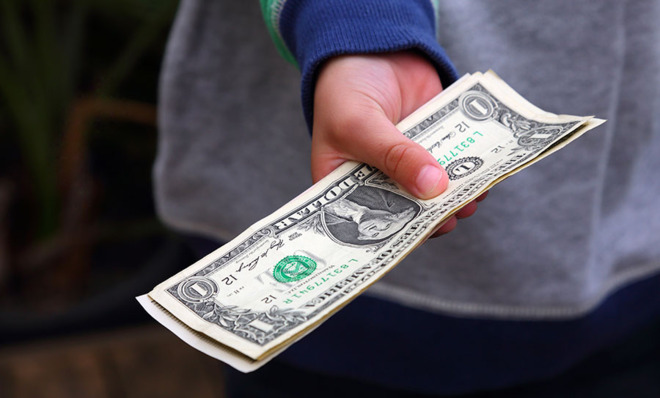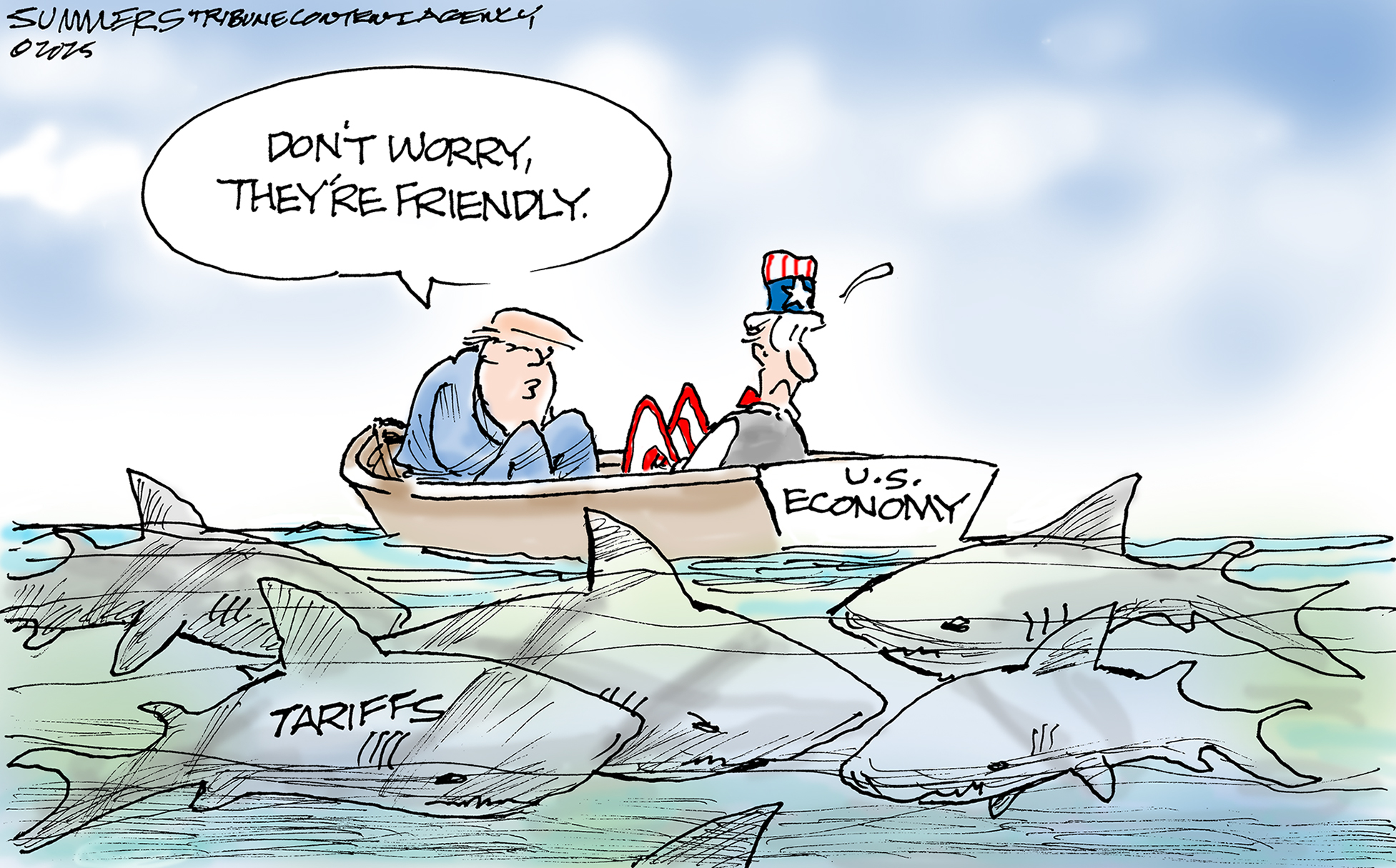Why the government should pay every American child an allowance
The U.S. has one of the highest child poverty rates in the developed world. It doesn't have to be this way.

Good news, America: Child poverty is declining! A Census Bureau report last week showed that 1.2 million fewer children were in poverty last year than the year before, a reduction that more than accounts for the entire drop in the overall poverty rate last year.
So why does it feel so bittersweet?
The decline in child poverty is definitely very good news, but it is merely a drop in the bucket of the larger child poverty problem. Even with last year's progress, the United States is poised to maintain the shameful distinction of having one of the highest child poverty rates in the developed world. It doesn't have to be this way.
Subscribe to The Week
Escape your echo chamber. Get the facts behind the news, plus analysis from multiple perspectives.

Sign up for The Week's Free Newsletters
From our morning news briefing to a weekly Good News Newsletter, get the best of The Week delivered directly to your inbox.
From our morning news briefing to a weekly Good News Newsletter, get the best of The Week delivered directly to your inbox.
While the United States was celebrating its serendipitous child poverty progress last week, the Canadian press was reporting on Conservative Party plans to attack child poverty head on. According to the reports, Canada's governing Conservative Party intends to expand the nation's universal child benefit program to cover all children, not just those under 6.
If the expansion goes through, all Canadian families will receive a $100 (Canadian dollars) monthly check for each child they are taking care of. This new benefit would be in addition to Canada's existing means-tested child benefits, which provide up to $300/month per child for the poorest families. The United States' child poverty rate is consistently 50 percent higher than Canada's in no small part because Canada has these kinds of benefits and the United States does not.
Canada is not alone in discovering the wonders child benefits can do for a country. Austria, Belgium, Finland, Norway, Denmark, Sweden, France, Iceland, Germany, Israel, and the United Kingdom have robust child benefits as well. In many of these countries, the programs have been around for a surprisingly long time. In the United Kingdom, for instance, families have been receiving helpful checks for nearly 70 years.
In theory, universal child benefits should attract support from the great majority of the political spectrum. Those on the left can get behind them because they reduce poverty and inequality, provide economic security, and tend to the welfare needs of the least among us. Those on the right can get behind them because they are pro-natalist and provide nonintrusive support for the family institution. For these and other reasons, leftist and conservative parties throughout much of the developed world have been able to agree on at least this issue.
But the United States is different. Neither the Democratic or Republican Party has any particular interest in a monthly child benefit program. It is not on the mainstream political radar. Even when small movements outside the mainstream get going, and even when those movements explicitly organize around providing income support for parents, they reject monthly child benefits in favor of annual tax credits that cruelly exclude low-income parents. The United States' unique obsession with low taxes and low benefits so clobbers any other faint interest its political parties might have in families and child welfare that child benefit proponents find themselves on the fringe.
Of course, just because an idea is fringe doesn't mean it isn't good. I've calculated that a universal child benefit program that paid parents $300 per month per child would have dramatic effects. If such a program were enacted, nearly every family in the country would feel a boost, the poorest families especially. All else equal, child poverty would be cut in half and overall poverty would be cut by one-quarter. In total, 11 million people would be pulled out of poverty (6 million children and 5 million parents). It would be affordable as well, with the annual fiscal cost being a mere 1 percent of GDP.
The news that child poverty has fallen a bit is thus bittersweet. Any decline in poverty is an occasion to celebrate, but it can be hard to avoid the depression that comes with knowing that we could do much better. While our more civilized neighbor to the north is preparing to expand its child benefit program, we continue to needlessly deprive tens of millions of our children of a basic standard of living.
Sign up for Today's Best Articles in your inbox
A free daily email with the biggest news stories of the day – and the best features from TheWeek.com
-
 Today's political cartoons - May 11, 2025
Today's political cartoons - May 11, 2025Cartoons Sunday's cartoons - shark-infested waters, Mother's Day, and more
-
 5 fundamentally funny cartoons about the US Constitution
5 fundamentally funny cartoons about the US ConstitutionCartoons Artists take on Sharpie edits, wear and tear, and more
-
 In search of paradise in Thailand's western isles
In search of paradise in Thailand's western islesThe Week Recommends 'Unspoiled spots' remain, providing a fascinating insight into the past
-
 The JFK files: the truth at last?
The JFK files: the truth at last?In The Spotlight More than 64,000 previously classified documents relating the 1963 assassination of John F. Kennedy have been released by the Trump administration
-
 'Seriously, not literally': how should the world take Donald Trump?
'Seriously, not literally': how should the world take Donald Trump?Today's big question White House rhetoric and reality look likely to become increasingly blurred
-
 Will Trump's 'madman' strategy pay off?
Will Trump's 'madman' strategy pay off?Today's Big Question Incoming US president likes to seem unpredictable but, this time round, world leaders could be wise to his playbook
-
 Democrats vs. Republicans: who are the billionaires backing?
Democrats vs. Republicans: who are the billionaires backing?The Explainer Younger tech titans join 'boys' club throwing money and support' behind President Trump, while older plutocrats quietly rebuke new administration
-
 US election: where things stand with one week to go
US election: where things stand with one week to goThe Explainer Harris' lead in the polls has been narrowing in Trump's favour, but her campaign remains 'cautiously optimistic'
-
 Is Trump okay?
Is Trump okay?Today's Big Question Former president's mental fitness and alleged cognitive decline firmly back in the spotlight after 'bizarre' town hall event
-
 The life and times of Kamala Harris
The life and times of Kamala HarrisThe Explainer The vice-president is narrowly leading the race to become the next US president. How did she get to where she is now?
-
 Will 'weirdly civil' VP debate move dial in US election?
Will 'weirdly civil' VP debate move dial in US election?Today's Big Question 'Diametrically opposed' candidates showed 'a lot of commonality' on some issues, but offered competing visions for America's future and democracy